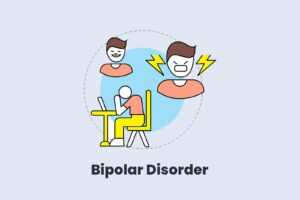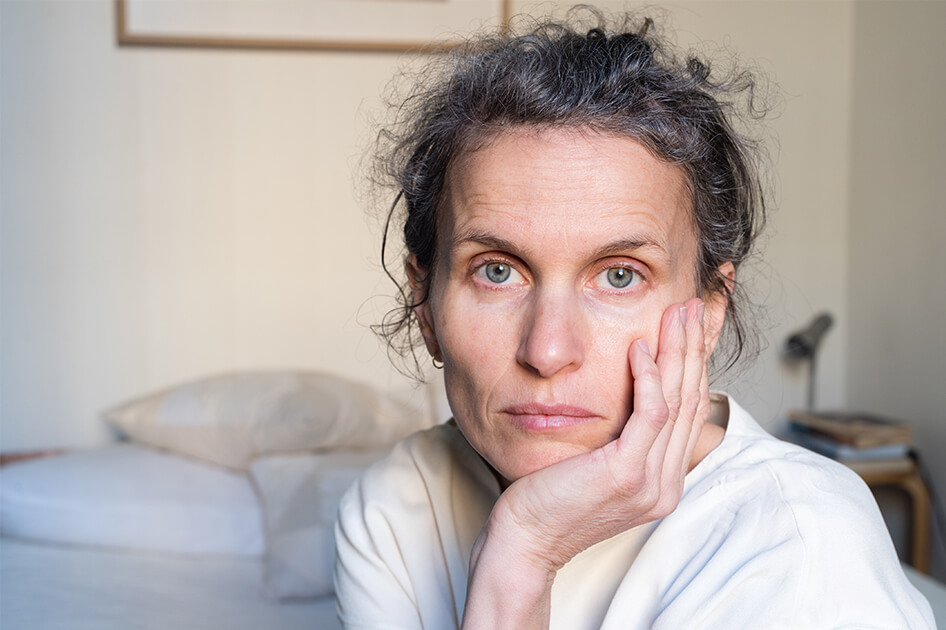When it comes to bipolar disorder and menopause, there are a few key things you need to keep in mind. First, it’s important to know that both conditions can be very serious and can have a significant impact on your health. Second, it’s important to know about the different treatments available for bipolar disorder and menopause. And finally, it’s important to know about the risks associated with both conditions. In this article, we’ll take a closer look at all of these key points.
Contents
What Is Bipolar Disorder?

Bipolar disorder is a mental disorder that occurs when a person experiences extreme mood swings, including periods of happiness and euphoria, followed by severe depression. It is the most common mental illness in the United States, affecting about 2.6 million people.
Bipolar disorder can also occur in women, but it is more commonly diagnosed in men.
While there is no one cause of the bipolar disorder, research suggests that genetic and environmental factors play a role.
About 75% of people with bipolar disorder experience episodes during their lifetime. About half of people with bipolar disorder never have a full-blown manic episode (a period of unusually high energy and enthusiasm).
There is no cure for bipolar disorder, but treatments can help manage symptoms.
If you think you may have bipolar disorder, talk to your doctor.
What Is Menopause?
Menopause is the time in a woman’s life when her ovaries stop producing eggs. It usually happens around age 45, but can start as early as age 40. Symptoms of menopause vary from woman to woman but may include changes in mood, sleep, sexual function, energy, and weight.
There is no one-size-fits-all answer to the question of what to do about menopause, as the best approach for each individual is determined by factors such as her health history and current medications. However, some general tips may be helpful for anyone experiencing symptoms of menopause. This also includes ways to reduce stress and manage anxiety.
Symptoms of Bipolar Disorder In Menopause

Many symptoms of bipolar disorder can occur during menopause. Some of the most common symptoms include:
Feeling out of control and unable to cope with life’s stresses
One of the most common signs of bipolar disorder is a change in mood or behavior. During menopause, many women experience an increase in irritability and mood swings. This can make it difficult to manage daily life and can lead to feelings of isolation.
Apathy and feeling tired all the time
Many women experience a decrease in energy during menopause. This may be caused by changes in hormone levels, such as a decreased production of estrogen. As a result, women may find it harder to stay active and may experience more fatigue than usual.
Changes in sleeping habits
During menopause, many women will experience changes in their sleeping habits. This is partly due to changes in hormone levels, but also because sleep becomes more difficult to achieve as the number of days per month that are light decreases. Women may also find it harder to fall asleep or REM (rapid eye movement) sleep.
Weight gain and increased appetite
Many women experience weight gain during menopause as their body shifts from burning calories primarily during exercise to burn calories more slowly due to lower estrogen levels. Additionally, the appetite may increase as the body tries to adjust to its new hormonal environment.
Extreme mood swings, from mania to depressive spells
Sometimes during menopause, women will experience an increase in depressive episodes. This can be particularly troublesome as mood swings can lead to difficulties with daily life and social interactions.
Mood changes that are not related to hormones
Many women experience mood changes that are not related to their hormonal levels. These changes may include problems with concentration, decreased motivation, and feeling overwhelmed or stressed.
Feeling hopeless or worthless
Another common symptom of bipolar disorder during menopause is a feeling of hopelessness or worthlessness. This can be caused by feelings of powerlessness and a lack of self-confidence. It can be difficult to find ways to cope with these feelings, and they can lead to increased anxiety and stress.
Difficulty concentrating, remembering things, or making decisions
Also common during menopause is a decline in cognitive function. This can include problems with memory, concentration, and decision-making. It can be hard to get things done, and it can be difficult to hold down a job or stay connected with friends.
Relationship Between Bipolar Disorder and Menopause
It is not uncommon for women to experience a manic or depressive episode during or shortly after menopause. The hormonal changes that occur during menopause can trigger bipolar disorder in some women. Additionally, many women with bipolar disorder experience a worsening of their symptoms during perimenopause and early postmenopause.
Also, the relationship between bipolar and menopause can be very complicated. For some women, the hormonal changes that occur during menopause may worsen their symptoms of bipolar disorder. In other cases, hormonal changes may improve the symptoms of bipolar disorder.
There is not a clear answer as to whether or not menopause causes bipolar disorder or vice versa. However, it is important to be aware of the potential link between these two conditions and to seek out professional help if you are experiencing significant problems with your moods or thoughts. Sometimes working with a mental health specialist can be the best way to manage both bipolar disorder and menopause.
How Can I Care About Bipolar Disorder During Menopause?

Since menopause is a time of great change for many women, it can also be a time of great change for men. Here are some tips to help you care for yourself during this time:
1. Talk to your doctor. There is no one-size-fits-all approach to managing menopause, so be sure to speak with your doctor about what might work best for you. They can help you identify any potential risks and provide advice on how to best manage them.
2. Get enough sleep. It’s important to get enough rest during menopause – both to relieve stress and to help your body function optimally. Try to get at least 7 hours of sleep per night. If you’re having trouble sleeping, talk to your doctor about possible remedies.
3. Eat a balanced diet. It’s important to make sure you’re getting enough nutrients from food during menopause – especially if you’re experiencing symptoms like dry skin or fatigue. Aim for a healthy mix of foods that includes plenty of fruits and vegetables, whole grains, and low-fat sources of protein.
4. Exercise regularly. Even if you’re not feeling your best, exercise can help improve your mood and overall well-being. Try to get at least 30 minutes of exercise every day.
5. Take supplements. If you’re concerned about the effects of menopause on your health, consider taking supplements to bolster your immune system, relieve symptoms, and support cognitive function. Talk to your doctor about which supplements might be best for you.
6. Seek support from family, friends, and professionals. It can be helpful to talk about your experiences and get feedback from others who may understand what you’re going through better than you do.
7. Educate yourself about the signs and symptoms of bipolar disorder and menopause. If you notice any changes in your mood, behavior, or energy levels that you didn’t experience before, it’s important to discuss them with your doctor. Remember: always consult with a qualified healthcare professional before making any changes to your treatment plan.
8. Make sure to get regular exercise and maintain a healthy weight throughout your entire life cycle – this will help reduce stress levels and improve overall health overall. Exercise also has positive effects on mood disorders like bipolar disorder.
9. Avoid using drugs and alcohol excessively. This can increase your risk of developing bipolar disorder and other conditions associated with chronic stress, such as heart disease.
10. Seek out psychiatric care if you are having difficulty managing your symptoms or if your mental health is in danger of deteriorating. Psychotherapy can be an effective treatment for bipolar disorder and may help to stabilize your mood and lessen the effects of episodes.
Conclusion
While it is true that bipolar disorder can affect any gender, some factors seem to make menopause an especially challenging time for those with bipolar disorder. Dr. Phil has spoken about this on several occasions and said that during perimenopause and menopause, “women’s hormones become suddenly erratic, sometimes in a way beyond their control.” This can lead to mood swings, anxiety, and even sleep disturbances in those with bipolar disorder. If you are struggling with bipolar disorder during or after menopause, be sure to talk to your doctor about what steps you might need to take to manage the condition effectively.
Hope this article was of help to you! If you are suffering from mental health disorders, you may seek help from Therapy Mantra. We have a team of highly trained and experienced therapists who can provide you with the tools and skills necessary for overcoming mental health disorders. Contact us today to schedule an online therapy or download our free Android or iOS app for more information.


